|
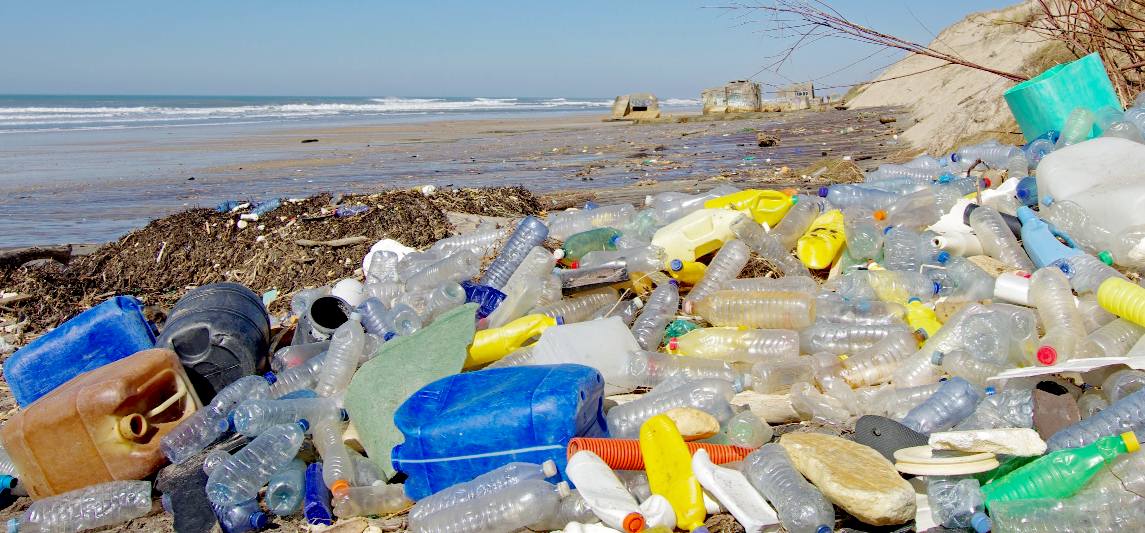
HARVESTING
- In 2050 our fishing fleets could be landing more plastic than fish -
on a weight by weight basis. Of course that is not going to happen,
because fishermen use nets designed to catch fish, not plastic. The fish
though will have a lot of plastic in their guts.
THE
TELEGRAPH - A TRUCK LOAD OF RUBBISH A MINUTE - 19 JANUARY 2016 Oceans will contain more plastic than fish by 2050 unless the world takes radical action to stop rubbish leaking into the seas, a major new report has warned.
At least 8 million tonnes of plastic already ends up in the ocean every year - the equivalent of a rubbish truck of waste every minute, according to the report from the World Economic Forum.
The rate of plastic pollution is only expected to increase as more and more plastic is used globally, especially in emerging economies with weaker waste and recycling regimes.
By 2030, plastic is expected to be leaking into the ocean at a rate of two trucks per minute, and by 2050 that could hit four per minute.
As a result, plastic will outweigh fish in the oceans by 2050, the report warns.
Currently, the amount of plastic in the oceans is estimated at about 150 million tonnes - about a fifth of the weight of the fish.
In pictures: The world's oceans as rubbish dumps
"Without significant action, there may be more plastic than fish in the ocean, by weight, by 2050.
"Even by 2025, the ratio of plastic to fish in the ocean is expected to be one to three, as plastic stocks in the ocean are forecast to grow to 250 million tonnes in 2025," the report says.
It says the estimates are conservative because they assume fish stocks remain stable over the period.
Studies suggest the increasing volume of plastic - which can take hundreds of years to degrade - harms the health of fish and marine ecosystems.
The World Economic Forum study, which was produced by the Ellen MacArthur Foundation, estimates that plastics are causing billions of dollars of damage to marine ecosystems a year.
It calls for a radical increase in recycling and the use of re-usable packaging, and says tackling the problem will require the joint efforts of consumer goods companies, plastic packaging producers, authorities that manage waste and policymakers.
by Emily
Gosden
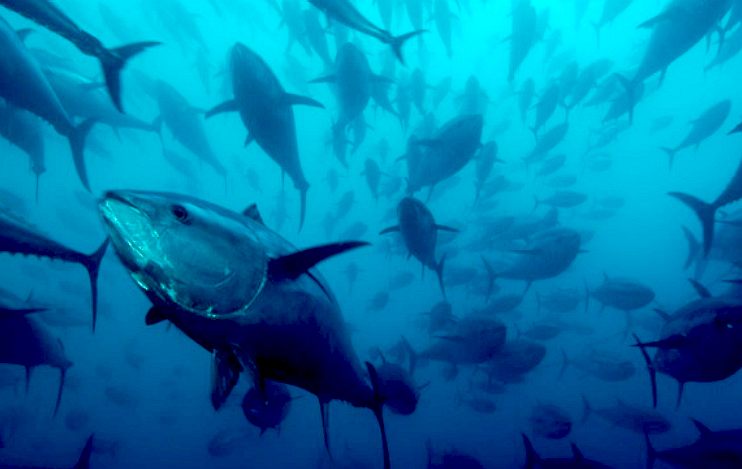
FISH
RESPONSIBLY - Bluefin
tuna is an endangered species as a result of ocean neglect. The UN's food
and environment
divisions work together to ensure sustainability in this regard.
WEF
ON PLASTIC Davos-Klosters,
Switzerland, 19 January 2016 – The current system by which we produce, use and dispose of plastics has important drawbacks: plastic packaging material with a value of $80 billion-$120 billion is lost each year. Aside from the financial cost, by 2050, on the current track, oceans are expected to contain more plastics than fish (by weight), according to a new report released today by the World Economic Forum and the
Ellen MacArthur Foundation, with McKinsey & Company as a knowledge partner, as part of Project MainStream. The New Plastics Economy: Rethinking the Future of Plastics provides for the first time a vision of a global economy in which plastics never become waste and outlines concrete steps towards achieving the systemic shift needed.
The report is underpinned by the principles of the circular economy – an economy that aims to keep materials at their highest value at all times. Assessing global
plastic packaging flows comprehensively for the first time, the report finds that most plastic packaging is used only once; 95% of the value of plastic packaging material, worth $80 billion-$120 billion annually, is lost to the economy after a short first use. The New Plastics Economy, outlined in this report, envisages a fundamental rethink for plastic packaging and plastics in general – a new model based on creating effective after-use pathways for plastics; drastically reducing leakage of plastics into natural systems, in particular oceans; and finding alternatives to crude oil and natural gas as the raw material of plastic production.
“This report demonstrates the importance of triggering a revolution in the plastics industrial ecosystem and is a first step to showing how to transform the way plastics move through our economy. To move from insight to large-scale action, it is clear that no one actor can work on this alone. The public, private sector and civil society all need to mobilize to capture the opportunity of the new circular plastics economy,” said Dominic Waughray, Head or Public-Private Partnership, World Economic Forum. 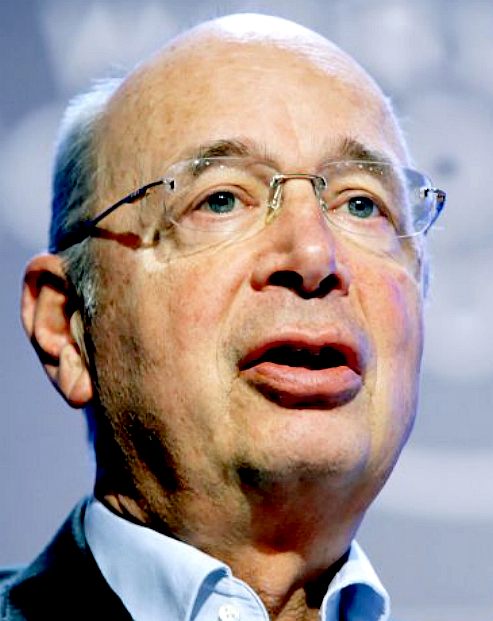
UN
ADVISER - From 1993-1995, Schwab was a member of the UN High-Level Advisory Board on Sustainable Development. From 1996-1998, he was Vice-Chairman of the
UN Committee for Development Planning. He also exercised a number of functions in the global public interest, such as being a member of The Peres Centre for Peace and a member of the board of the Lucerne Festival. During the earlier years of his career, he was on a number of company boards, such as The Swatch Group, The
Daily Mail Group, and Vontobel Holding. He is a former member of the Steering Committee of the Bilderberg Group.
In 1971, Schwab founded the World Economic Forum as a not-for-profit foundation committed to improving the state of the world, later building it into today's global partnership of business, political, and intellectual leaders.
In 1998, Schwab and his wife founded the Schwab Foundation for Social Entrepreneurship, a non-profit organization based in Geneva, Switzerland.
In 2004, Schwab created a new foundation using the US$1 million prize money from the Dan David Prize he received that year from Israel. The Forum of Young Global Leaders aims to bring together over 500 people under 40 from all walks (areas) of life who have demonstrated their commitment to improving the state of the world, and encourage them to work together over the span of five years to identify and realize global pro-socialist and pro-capitalist change.
The report, produced as part of Project MainStream, a collaboration between the Ellen MacArthur Foundation and the World Economic Forum, with analytical support from McKinsey & Company, finds that the use of plastics has increased twentyfold in the past half-century and is expected to double again in the next 20 years. While plastics and plastic packaging are an integral part of the global economy and deliver many benefits, the report shows that their value chains currently entail significant drawbacks.
“Linear models of production and consumption are increasingly challenged by the context within which they operate – and this is particularly true for high-volume, low-value materials such as plastic packaging. By demonstrating how circular economy principles can be applied to global plastic flows, this report provides a model for achieving the systemic shift our economy needs to make in order to work in the long term,” said
Dame Ellen MacArthur, Ellen MacArthur Foundation.
Achieving the systemic change needed to shift the global plastic value chain will require major collaboration efforts between all stakeholders across the global plastics value chain – consumer goods companies, plastic packaging producers and plastics manufacturers, businesses involved in collection, sorting and reprocessing, cities, policy-makers and NGOs. The report proposes the creation of an independent coordinating vehicle to set direction, establish common standards and systems, overcome fragmentation, and foster innovation opportunities at scale. In line with the report’s recommendations, the
Ellen MacArthur Foundation will establish an initiative to act as a cross-value-chain global dialogue mechanism and drive the shift towards a New Plastics Economy.
“Plastics are the workhorse material of the modern economy – with unbeaten properties. However, they are also the ultimate single-use material. Growing volumes of end-of-use plastics are generating costs and destroying value to the industry. After-use plastics could – with circular economy thinking – be turned into valuable feedstock. Our research confirms that applying those circular principles could spark a major wave of innovation with benefits for the entire supply chain,” said Martin R. Stuchtey, McKinsey Center for Business and Environment.
The report’s findings are timely: knowledge and understanding of the circular economy among business leaders and policy-makers is growing, as demonstrated by the European Commission’s recent circular economy package and associated funding announcements; new technologies are unlocking opportunities in material design, reprocessing and renewable sourcing; developing countries are investing in after-use infrastructure; and governments are increasingly considering – and implementing – policies around plastic packaging.
The New Plastics Economy: Rethinking the Future of Plastics report was produced by the World Economic Forum and
Dame
Ellen MacArthur's Foundation as part of Project MainStream, a multi-industry, global initiative launched in 2014. Analytical support was provided McKinsey & Company, and financial support by the MAVA Foundation. MainStream is led by the chief executive officers of nine global companies: Averda, BT, Tarkett, Royal DSM, Ecolab, Indorama, Philips, SUEZ and Veolia. Frans van Houten, Chief Executive Officer of Philips, is chairman of the leadership group. It focuses on systemic stalemates in global material flows that are too big or too complex for an individual business, city or government to overcome alone, as well as on enablers of the circular economy such as digital technologies.
Over 2,500 leaders from business, government, international organizations, civil society, academia, media and the arts will participate in the 46th World Economic Forum Annual Meeting in Davos-Klosters, Switzerland, on 20-23 January. Under the theme, Mastering the Fourth Industrial Revolution, the programme comprises over 250 sessions, of which over 100 will be webcast live.
Taking a formative role in shaping the discussion at the Annual Meeting 2016 as the Co-Chairs are: Mary Barra, Chairman and Chief Executive Officer, General Motors, USA; Sharan Burrow, General Secretary, International Trade Union Confederation (ITUC), Brussels; Satya Nadella, Chief Executive Officer, Microsoft Corporation, USA; Hiroaki Nakanishi, Chairman and Chief Executive Officer, Hitachi,
Japan; Tidjane Thiam, Chief Executive Officer, Credit Suisse, Switzerland; and Amira Yahyaoui, Founder and Chair, Al Bawsala,
Tunisia. 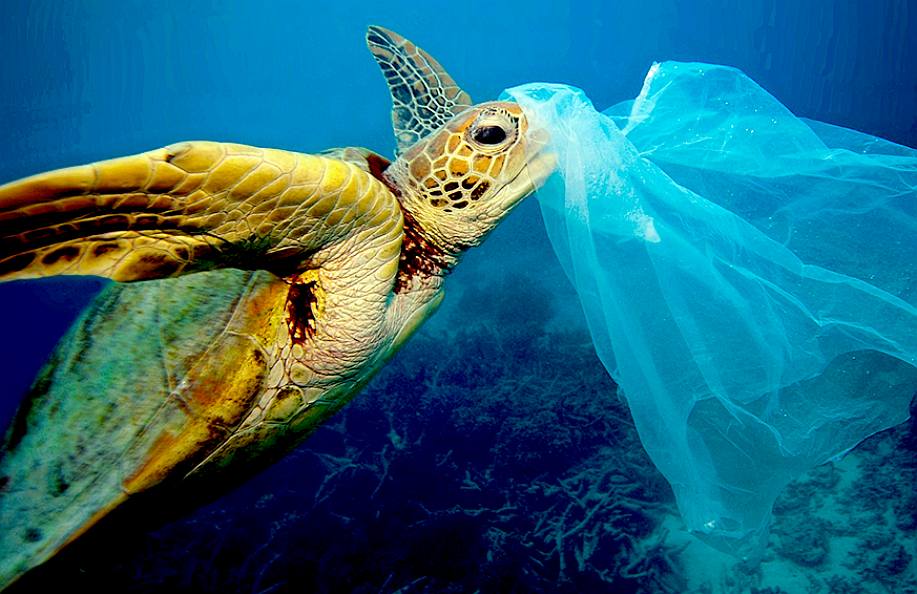
ABOUT
THE WEF The World Economic Forum, committed to improving the state of the world, is the International Organization for Public-Private Cooperation.
The Forum engages the foremost political, business and other leaders of society to shape global, regional and industry agendas.
It was established in 1971 as a not-for-profit foundation and is headquartered in Geneva, Switzerland. It is independent, impartial and not tied to any special interests. The Forum strives in all its efforts to demonstrate entrepreneurship in the global public interest while upholding the highest standards of governance. Moral and intellectual integrity is at the heart of everything it does.
Our activities are shaped by a unique institutional culture founded on the stakeholder theory, which asserts that an organization is accountable to all parts of society. The institution carefully blends and balances the best of many kinds of organizations, from both the public and private sectors, international organizations and academic institutions.
We believe that progress happens by bringing together people from all walks of life who have the drive and the influence to make positive change. METRO UK - OCEANS EXPECTED TO CONTAIN MORE PLASTIC THAN FISH BY 2050
By 2050 the planet’s oceans are expected to contain more plastic than actual fish.
The disturbing announcement was made by the World Economic Forum, who found that almost a third of all the plastic used by humans leaks into the environment.
If the plastic isn’t re-used, recycled, put in landfill or eaten by an animal, it ends up in the sea.
The WEF analysed around 200 different studies and spoke to 180 environment experts to reach their conclusion.
‘If no action is taken, this is expected to increase to two [truck-fulls] per minute by 2030 and four per minute by 2050,’ the report said.
‘In a business-as-usual scenario, the ocean is expected to contain one tonne of plastic for every 3 tonnes of fish by 2025, and by 2050, more plastics than fish.’
Acting on their findings the WEF have scheduled a meeting in Davos, Switzerland to figure out a positive solution to what they call the ‘plastic problem’.
Because plastic is used in so many industries and for so many products, it’s not likely to be a quick or simple problem to resolve.
Dominic Waughray from WEF said: ‘To move from insight to large-scale action, it is clear that no one actor can work on this alone.
‘The public, private sector and civil society all need to mobilise to capture the opportunity of the new circular plastics economy.’
There are definite indicators that we’re becoming more aware of the detrimental impact of our everyday plastic use.
Last year the Government introduced a mandatory 5p charge on plastic carrier bags from retailers in an attempt to reduce usage in the UK – and it worked, it’s down 80 per cent.
America also recently banned plastic microbeads from toiletries.
by Nicole Morley
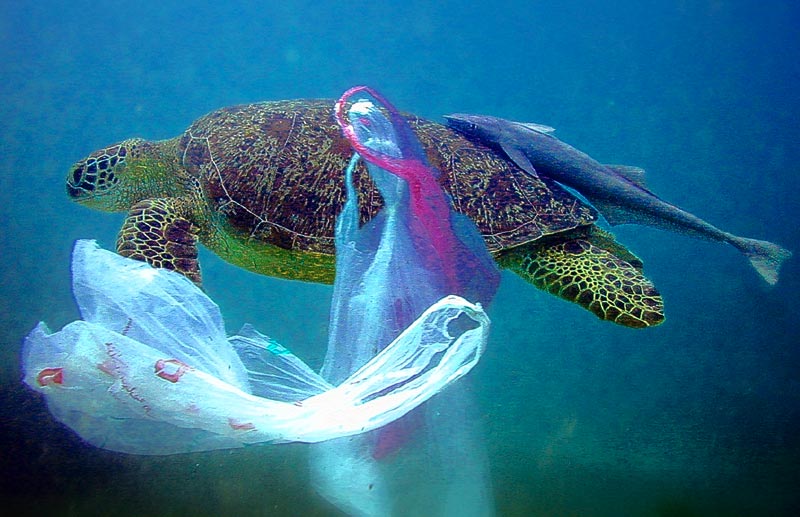
HEY
MAN - Think about us once in a while.

WEF
CONTACTS
Switzerland
World Economic Forum Switzerland
91-93 route de la Capite,
CH-1223 Cologny/Geneva
Switzerland
Contact Numbers:
Tel: +41 22 869 1212
Fax: +41 22 786 2744
Email: contact@weforum.org
USA
World Economic Forum USA
3 East 54th Street, 18th Floor,
New York, NY 10022, USA
Contact Numbers:
Tel: +1 212 703-2300
Fax: +1 212 703-2399
Email: forumusa@weforum.org
China
World Economic Forum Beijing China
World Financial Centre
501-503, West Tower
No. 1 East 3rd Ring Middle Road
Chaoyang District
Beijing, 100020, China
Contact Numbers:
Tel: +86 10 6599 9500 / 88
Fax: +86 10 6599 9501
Japan
World Economic Forum Japan Japan
Roppongi Hills Mori Tower 49F
6-10-1, Roppongi, Minato-ku, Tokyo
106-0049, Japan
Contact numbers:
Tel: +81 (0)3 5771 0067
Fax: +81 (0)3 5771 0068
NOTES
FOR EDITORS
Read
The New Plastics Economy: Rethinking the Future of Plastics here
Learn
more about The World Economic Forum’s Circular Economy Project: http://www.weforum.org/projects/circular-economy
All
about the Annual Meeting 2016: http://wef.ch/davos16
Access
photo archive: http://wef.ch/pics
Become
a Facebook fan: http://wef.ch/facebook
Follow
us on Google+: http://wef.ch/gplus
LINKS
& REFERENCE
http://metro.co.uk/author/nicole-morley-for-metro-co-uk/
http://metro.co.uk/2016/01/23/oceans-are-expected-to-contain-more-plastics-than-fish-by-2050-5639971/
http://www.theguardian.com/business/2016/jan/20/leonardi-dicaprio-savages-corporate-greed--big-oil-enough-is-enough
http://www.weforum.org/press/2016/01/more-plastic-than-fish-in-the-ocean-by-2050-report-offers-blueprint-for-change
http://www.telegraph.co.uk/journalists/emily-gosden/
http://www.telegraph.co.uk/news/earth/environment/12108522/More-plastic-than-fish-in-the-oceans-by-2050-report-warns.html
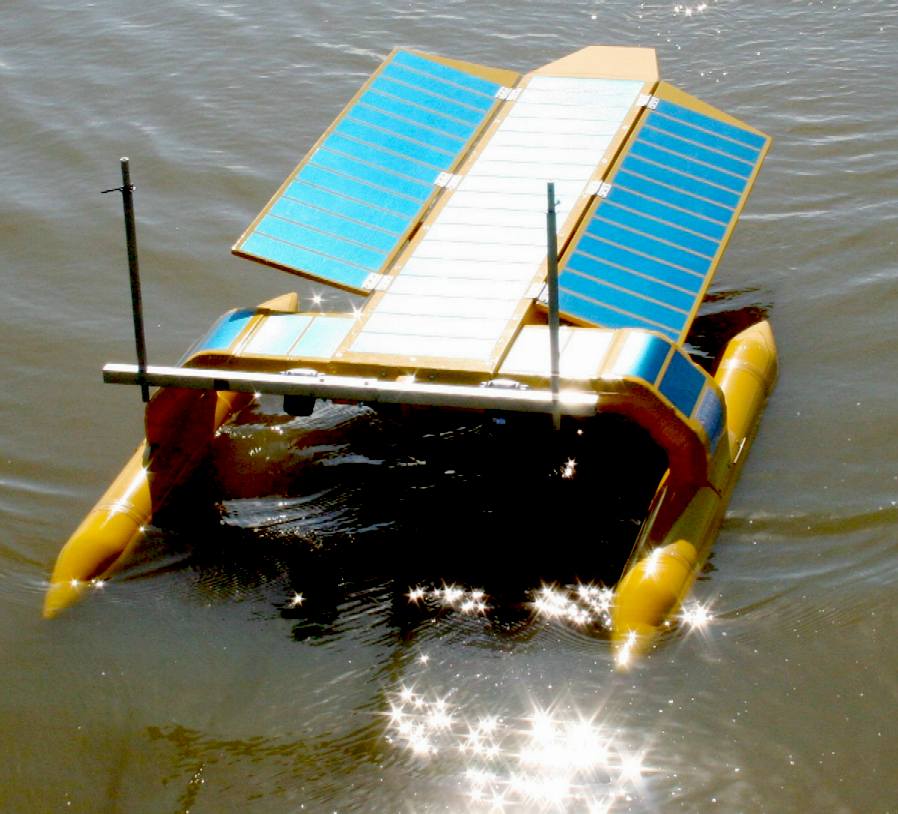
UN
CONCERNS ON MARINE LITTER - Marine litter (debris) issue was addressed
at the 60th and 63rd UN General Assembly held in October 2005 and in
September 2008, respectively, and was reflected in the resulting
resolutions. The Global
Ocean Commission recommended no action to tackle plastic waste in their
2013-2014 report. In light of the present concerns that recommendation appears not only
irrational but smacks of a political whitewash.
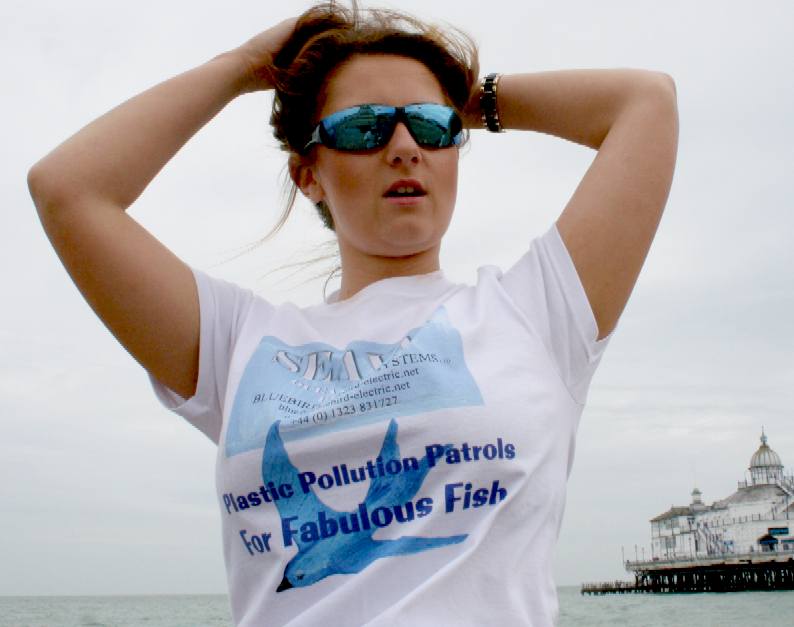
OCEANS
MATTER - Monica wants what everyone else wants, a life that does not
depend on the human race extinguishing life on earth.
ACIDIFICATION
- ADRIATIC
- ARCTIC
- ATLANTIC - BALTIC
- BAY BENGAL - BERING
- CARIBBEAN - CORAL - EAST
CHINA
ENGLISH CH
-
GOC - GULF
GUINEA - GULF
MEXICO
- INDIAN
-
IRC - MEDITERRANEAN -
NORTH SEA - PACIFIC
- PERSIAN GULF - SEA
JAPAN
STH
CHINA - PLASTIC
- PLANKTON - PLASTIC
OCEANS - SEA
LEVEL RISE - UNCLOS
- UNEP
WOC
- WWF
AMAZON
- BURIGANGA - CITARUM - CONGO - CUYAHOGA
-
GANGES - IRTYSH
- JORDAN - LENA -
MANTANZA-RIACHUELO
MARILAO
- MEKONG - MISSISSIPPI - NIGER - NILE - PARANA - PASIG - SARNO - THAMES
- YANGTZE - YAMUNA - YELLOW
|





